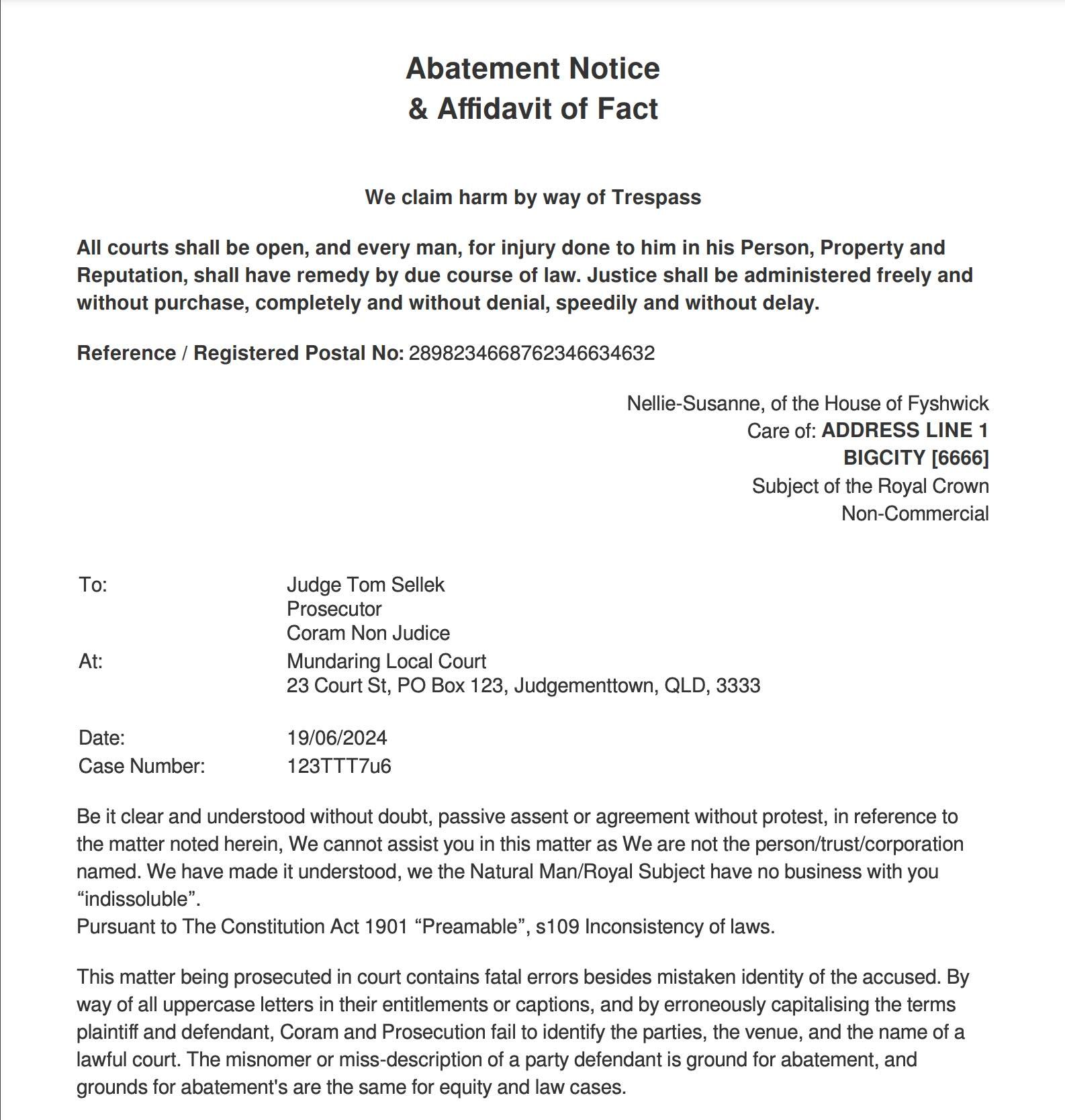Australian case law precedents demonstrating dishonourable conduct of local councils regarding the non-acceptance of bills of exchange
More forms in the category "Bill of Exchange"
Bill of Exchange – Rebuttal Questions
Below is a list of rebuttal questions tailored to challenge the claims made by corporations in relation to the Bill of Exchange Act 1909 (Cth) and related statements. These questions aim to create an environment for constructive discussion about the legitimacy of the...
Bill of Exchange Endorsement – Read First
Legal definition of sui juris? sui ju·ris -ˈjur-is, -ˈyü-rēs. 1. : having full legal capacity to act on one's own behalf : not subject to the authority of another. 2. : qualified to enjoy full rights of citizenship (as of holding public office or serving on a...
Bill of Exchange Indorsement – KNOW HOW TO USE
Introduction: What is a Bill of Exchange and Indorsement?What is a Legitimate Indorsement?Types of IndorsementsHow to Write a Legitimate IndorsementWhere to Write the IndorsementExample of a Bill of Exchange with IndorsementFront of the Bill (Sample)Back of the Bill...
Bills of Exchange and Promissory Notes as legal tender and payment methods in Australia
The concepts of bills of exchange and promissory notes as legal tender and payment methods in Australia can be somewhat complex. While there are cases and legal principles that discuss these instruments, particularly in relation to contracts, negotiability, and...
BoE cannot be used to buy an item, only to discharge pre-existing debts
A Bill of Exchange (BOE) cannot be used to buy an item (car, house, stereo system, big screen TV, etc.). A BOE can only be used to discharge pre-existing debts. At this point, we believe that some sort of “loan” would have to exist or credit used to purchase the...
BoE Cheque, Promissory Note & Indorsement Manuals
Cases Involving Bills of Exchange and Promissory Notes
While there may not be an extensive list of Australian case law explicitly focused solely on the successful use of bills of exchange and promissory notes, several cases illustrate their enforceability and use within legal contexts. Here’s a list of notable Australian...
Comparison of Key Provisions: Australia (1909) vs UK (1882) Bills of Exchange Acts
Australian Act 1909 – Section UK Act 1882 – Equivalent(s) Topic Notes s 6 (No equivalent) Application of Act AU-specific; establishes national applicability s 7 (No equivalent) Application of State laws Reflects Australian federalism; no UK equivalent s 8 s 3...
How creditors might respond to a Bill of Exchange or Promissory Note
The first thing I should say is that I don’t know of a single instance in which anyone has been arrested or gone to prison for issuing a properly executed BoE or bond to discharge a debt. But I must also say that, in many cases, “creditors” either pretend or may in...

